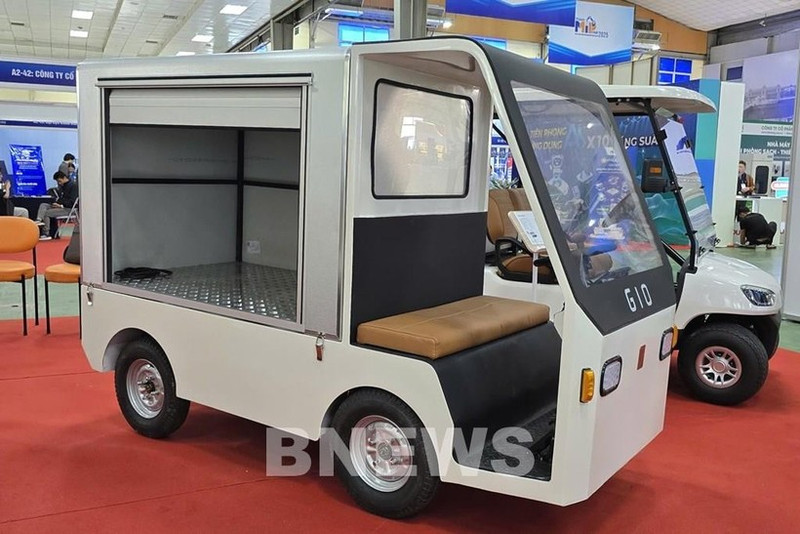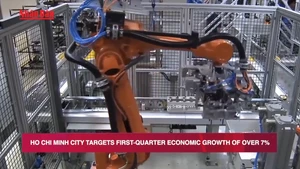The Tano 250 represents a major milestone in the company’s journey toward practical electric mobility. The project represents the spirit of the Politburo's Resolution 57 dated December 22, 2025, calling for technological innovation and industrial self-reliance.
As a fully “Made in Viet Nam” product, the GIO Tano 250 was designed, engineered, and built entirely by Vietnamese experts — from the chassis to the control software and electrical systems.
According to product development manager Pham Trung Hung, the model draws from Thai Hung’s experience producing electric golf carts, sightseeing vehicles, and light cargo carriers.
"The Tano 250 is our contribution to building a modern and sustainable Vietnamese EV industry," he said.
Compact yet powerful, the Tano 250 targets small businesses, farms, and eco-tourism sites, offering an efficient transport solution for narrow streets and factory zones where larger trucks are impractical.
Measuring 2,400 x 1,000 x 1,650 mm with a 1,800 mm wheelbase, it features a 1.2 kW electric motor and a 1.2 kW electric motor, delivering a maximum torque of 40 Nm. The vehicle is programmed with an automatic braking control system that activates when the speed drops below 2 km/h, enhancing safety and energy efficiency.
Customisable for various uses, the model promotes low-emission, low-noise mobility in urban and agricultural settings. With an estimated retail price starting at 35 million VND ( nearly 1,330 USD), it aims to make green transport more accessible to everyday users.
At the same event, Thai Hung Corp also showcased other electric vehicles, including golf carts, patrol EVs, and the Bestune Xiaoma mini electric car, reaffirming its commitment to innovation and diversification in Viet Nam’s growing electric mobility sector.
















